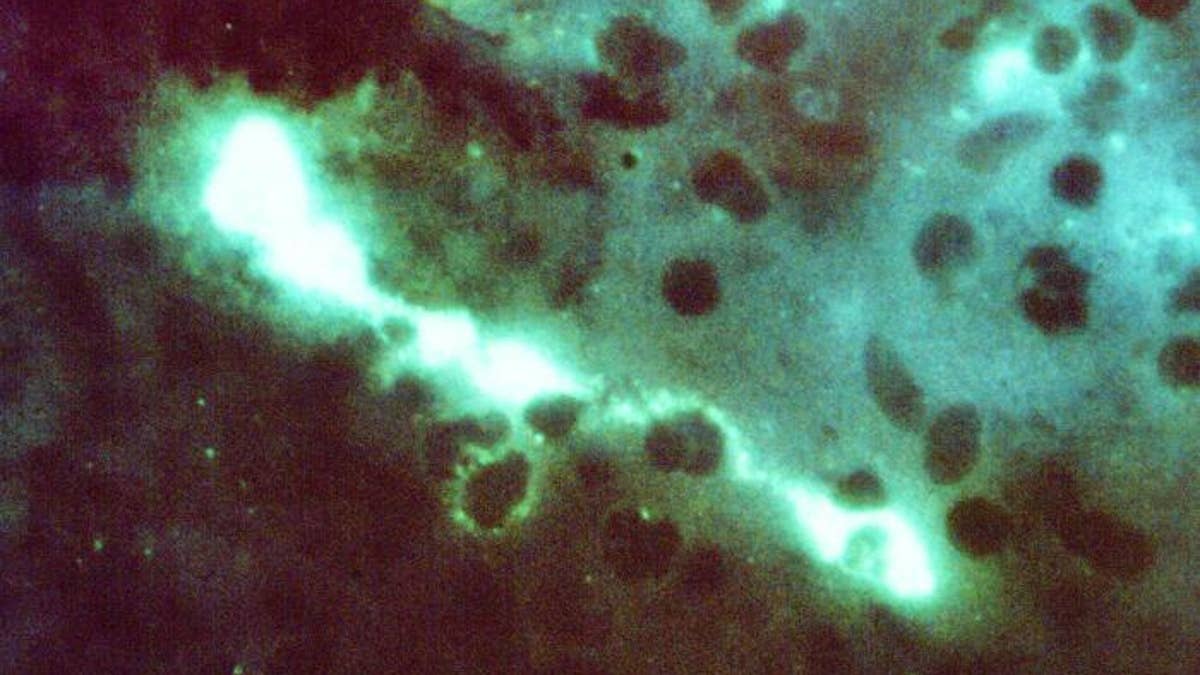
Chlamydia. (CDC/ Dr. Vester Lewis)
For the first time, researchers have designed what they say is an effective chlamydia vaccine that can be administered nasally. Preliminary findings from animal studies conducted at McMaster University in Canada suggest the test may show promise.
According to the Centers for Disease Control and Prevention, chlamydia is the most commonly reported sexually transmitted disease (STD) in the United States. It can be cured with prompt antibiotic treatment, but untreated, chlamydia can lead to infertility, genital tract infections and pelvic inflammatory disease. Worldwide, the STD affects 113 million people.
Researchers’ study, published Tuesday in the journal Vaccine, identified a novel chlamydial antigen called BD584, which may make a good candidate for a vaccine against the most common chlamydia species, Chlamydia trachomatis, which typically is asymptomatic.
"Vaccine development efforts in the past three decades have been unproductive and there is no vaccine approved for use in humans," study co-author David Bulir, who just finished his Ph.D. in medical sciences at McMaster, said in a news release. "Vaccination would be the best way to way to prevent a chlamydia infection, and this study has identified important new antigens which could be used as part of a vaccine to prevent or eliminate the damaging reproductive consequences of untreated infections."
The study showed that BD584 reduced chlamydial shedding by 95 percent and hydrosalpinx, which occurs when serious fluids block fallopian tubes, by 87.5 percent.
Co-author and McMaster Ph.D. student Steven Liang said the vaccine also has the potential to protect against C. trachomatis strains that cause trachoma, an eye infection caused by chlamydia and the leading cause of preventable blindness worldwide.
Administered nasally, the vaccine could be a simple and inexpensive way to protect against the STD.
Next, study authors said they would study the antigen’s effectiveness against different strains of chlamydia with different formulations.








































